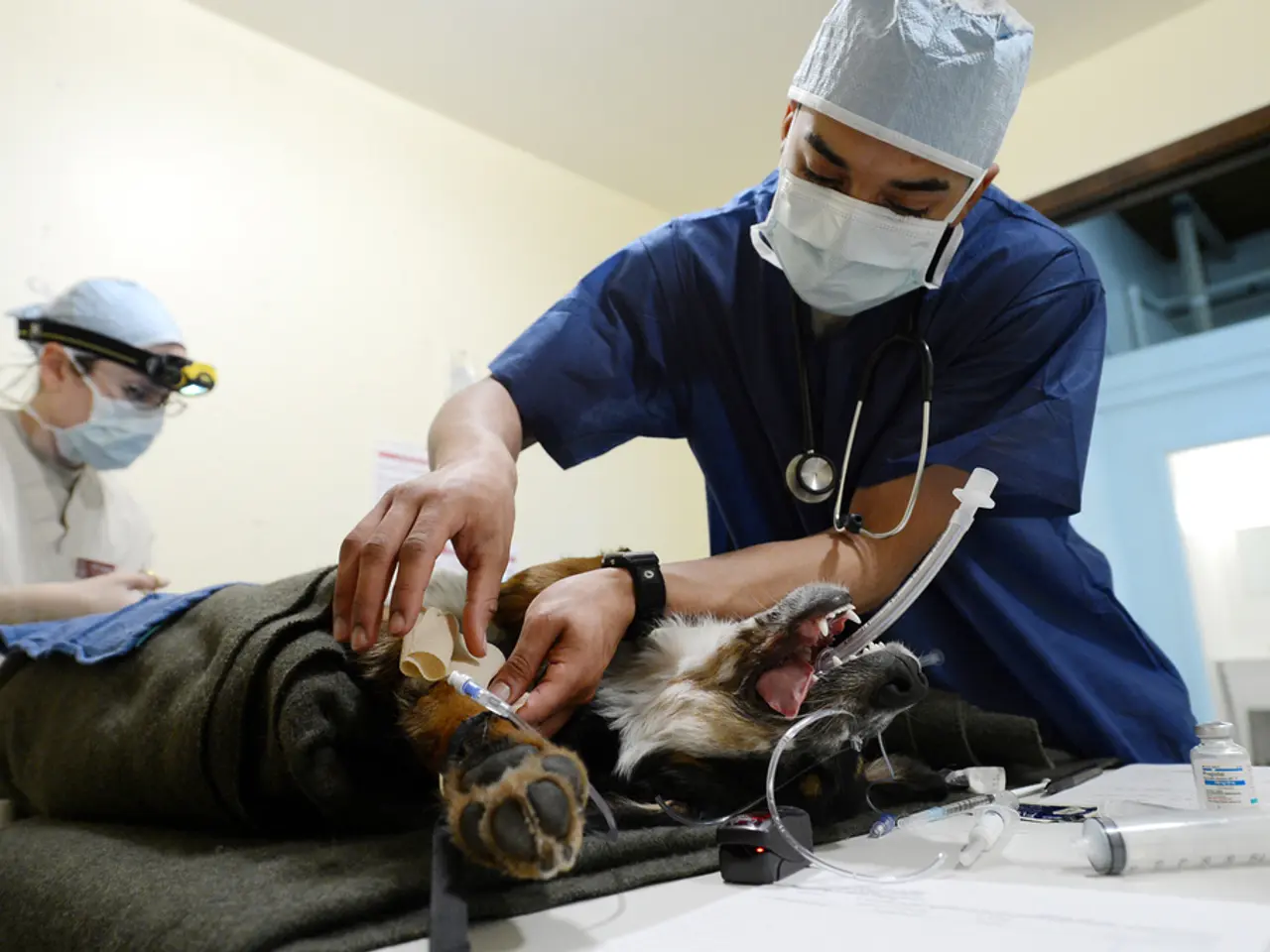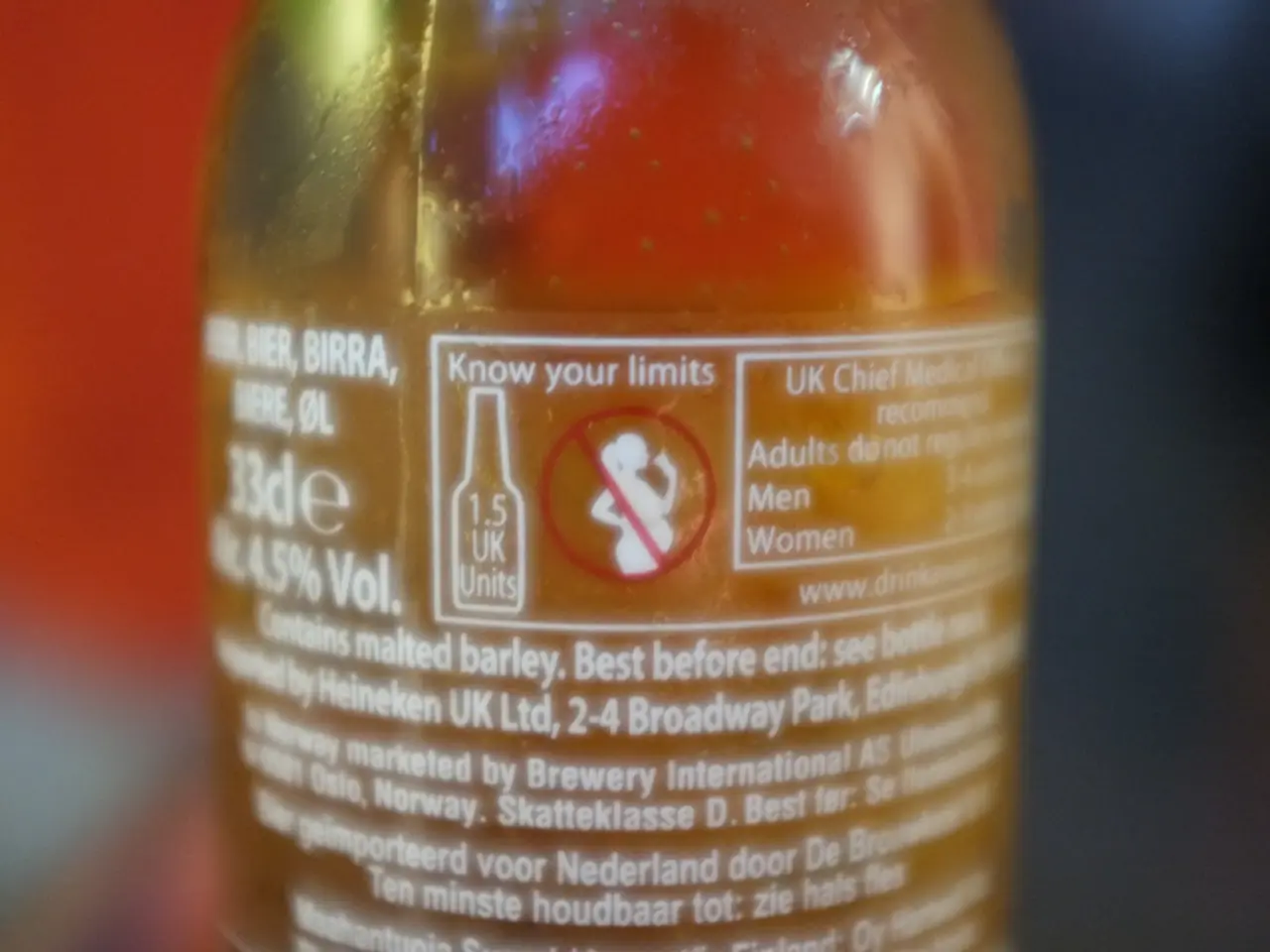New rival in the implantable glucose monitoring market surfaces, presenting initial data
Glucotrack, a diabetes technology company, is making strides in the development of an implantable continuous blood glucose monitor (CBGM), aiming to address challenges with wearable CGMs such as lag time in readings and irritation from adhesives. The company's CEO, Paul Goode, a veteran in the diabetes tech industry, having worked for Dexcom and MiniMed, a diabetes tech business acquired by Medtronic, leads this innovative venture.
Glucotrack's implantable CBGM has recently completed its first-in-human clinical study, with results presented at the American Diabetes Association’s 85th Scientific Sessions. The study, involving 10 participants, met all primary and secondary endpoints, demonstrating no procedure- or device-related serious adverse events. The mean absolute relative difference (MARD) was 7.7%, a competitive result compared to CGMs on the market.
In contrast, Senseonics' Eversense, the only implantable CGM currently on the U.S. market, is FDA-cleared for a one-year wear. While Glucotrack's device is designed for up to three years of continuous use, making it the longest-lasting implantable CGM currently in development.
Senseonics' device is placed in the upper arm, in the subcutaneous space, while Glucotrack's device is implanted in the bloodstream, measuring glucose values directly from the blood for real-time readings. This direct measurement approach sets Glucotrack's device apart from most continuous glucose monitors on the market today, which measure the concentration of glucose in the interstitial fluid surrounding cells.
Glucotrack expects to receive FDA investigational device exemption (IDE) in Q4 2025, which would allow further clinical studies in the U.S. ahead of a submission for market approval. Not yet cleared for commercial use in the U.S., Glucotrack is planning additional safety and performance studies in 2025, including a long-term early feasibility study expected to begin in Q3 2025.
Senseonics has already completed the regulatory process for the U.S. and Europe for its earlier models, with Eversense E3 approved for up to 6 months in the U.S., and Eversense 365 approved for up to 1 year in Europe (not yet cleared in the U.S.). Senseonics aims to double its 2025 sales with its 365-day CGM.
In terms of safety data, Glucotrack's device demonstrated a high data capture rate of 99% and no serious adverse events in the first study. Senseonics' Eversense has extensive safety data from multiple studies and real-world use, with known low rates of serious adverse events, but minor site reactions can occur. MARD, a measurement used to compare blood glucose readings from a CGM to reference measurements, is typically around 9-11% for Eversense E3, depending on the study, which is comparable or slightly higher than Glucotrack’s early results.
In summary, Glucotrack’s implantable CBGM is currently in early clinical development with promising initial safety and accuracy results, but it is not yet FDA-cleared and faces ongoing studies before potential market entry. Senseonics’ Eversense is already FDA-cleared for up to 6 months in the U.S., with longer-life products available in other markets. Glucotrack’s device stands out for its three-year lifespan and direct blood glucose measurement, but it must complete additional regulatory and clinical milestones to reach the market.
[1] Glucotrack Press Release, June 2023 [2] Glucotrack Clinical Study Results, June 2023 [3] Glucotrack Company Website, June 2023 [4] Glucotrack Investor Presentation, June 2023
- The FDA is yet to grant an investigational device exemption (IDE) to Glucotrack, a diabetes technology company, for their implantable continuous blood glucose monitor (CBGM), aiming to further clinical studies in the U.S. ahead of market approval.
- Despite Senseonics' Eversense being the only implantable CGM currently on the U.S. market and FDA-cleared for a one-year wear, Glucotrack's device is designed for up to three years of continuous use, making it the longest-lasting implantable CGM in current development.
- The medical-technology industry, specifically companies like Glucotrack and Senseonics, are emphasizing health-and-wellness and science through the development and refinement of AI-powered medtech devices, such as implantable continuous glucose monitors (CGMs).
- In terms of safety, Glucotrack's device demonstrated a high data capture rate of 99% and no serious adverse events in the first study, while Senseonics' Eversense has extensive safety data from multiple studies and real-world use, with known low rates of serious adverse events but minor site reactions can occur.
- During the American Diabetes Association’s 85th Scientific Sessions, Glucotrack presented the results of its first-in-human clinical study involving 10 participants, showing no procedure- or device-related serious adverse events, and a competitive mean absolute relative difference (MARD) of 7.7%.
- News in the medtech industry highlights the advancements made by companies, like Glucotrack, in addressing the challenges with wearable CGMs, such as lag time in readings and irritation from adhesives, through innovative approaches like implantable devices that measure glucose values directly from the blood for real-time readings.




